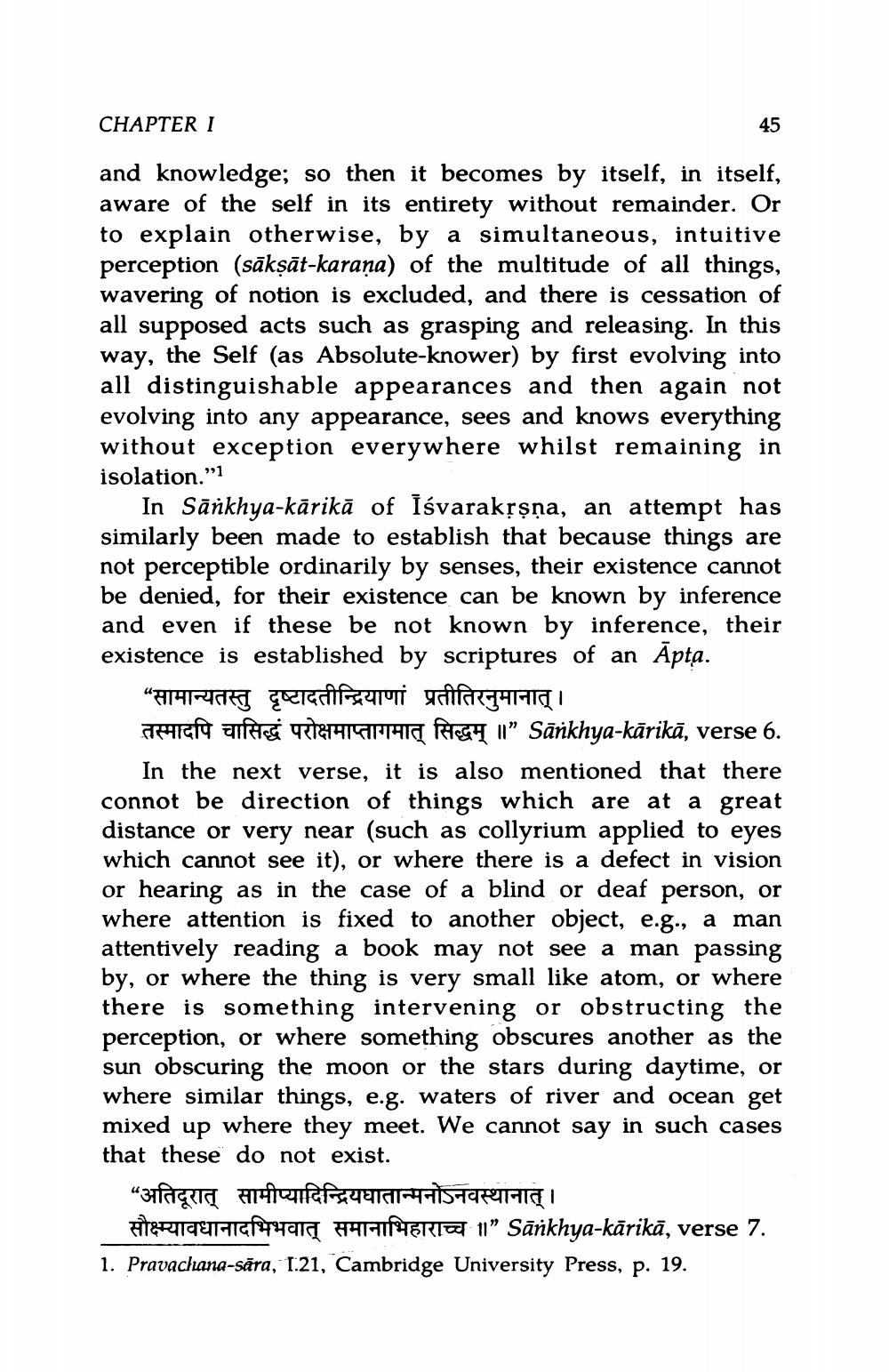________________
CHAPTER I
45
and knowledge; so then it becomes by itself, in itself, aware of the self in its entirety without remainder. Or to explain otherwise, by a simultaneous, intuitive perception (sākṣāt-karaṇa) of the multitude of all things, wavering of notion is excluded, and there is cessation of all supposed acts such as grasping and releasing. In this way, the Self (as Absolute-knower) by first evolving into all distinguishable appearances and then again not evolving into any appearance, sees and knows everything without exception everywhere whilst remaining in isolation."1
In Sankhya-kārikā of Īśvarakṛṣṇa, an attempt has similarly been made to establish that because things are not perceptible ordinarily by senses, their existence cannot be denied, for their existence can be known by inference and even if these be not known by inference, their existence is established by scriptures of an Apta.
“ सामान्यतस्तु दृष्टादतीन्द्रियाणां प्रतीतिरनुमानात् ।
amft anfug qamrarına fagy 11” Sānkhya-kārikā, verse 6.
In the next verse, it is also mentioned that there connot be direction of things which are at a great distance or very near (such as collyrium applied to eyes which cannot see it), or where there is a defect in vision or hearing as in the case of a blind or deaf person, or where attention is fixed to another object, e.g., a man attentively reading a book may not see a man passing by, or where the thing is very small like atom, or where there is something intervening or obstructing the perception, or where something obscures another as the sun obscuring the moon or the stars during daytime, or where similar things, e.g. waters of river and ocean get mixed up where they meet. We cannot say in such cases that these do not exist.
“अतिदूरात् सामीप्यादिन्द्रियघातान्मनोऽनवस्थानात् ।
cafraid antara 1" Sānkhya-kārikā, verse 7. 1. Pravachana-sara, 1.21, Cambridge University Press, p. 19.




